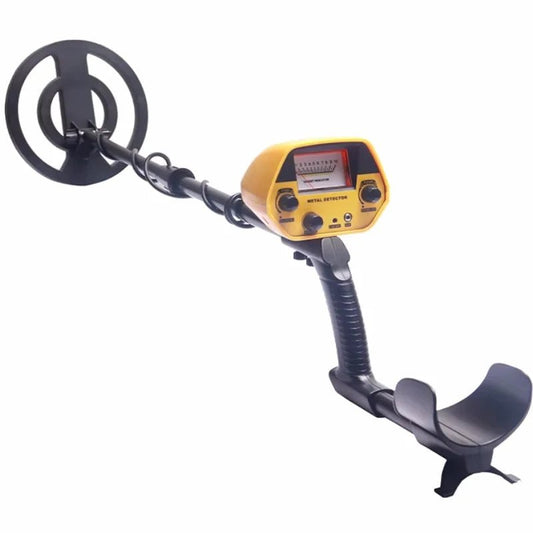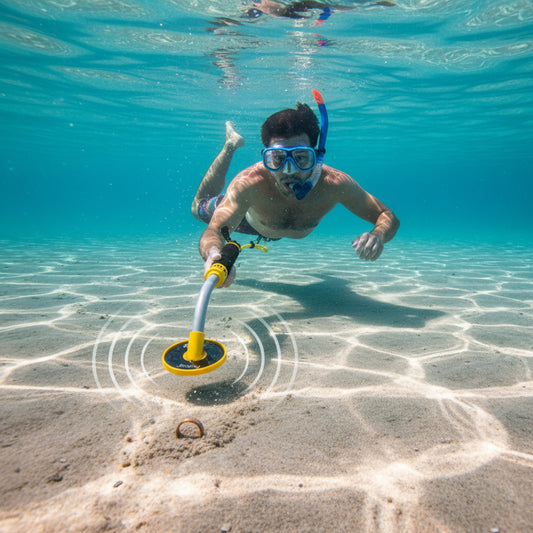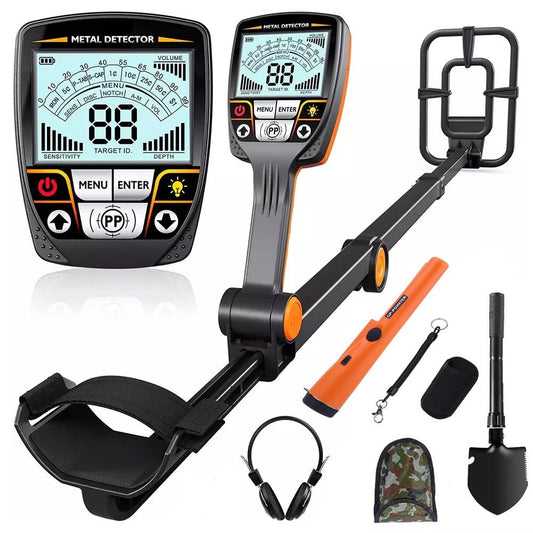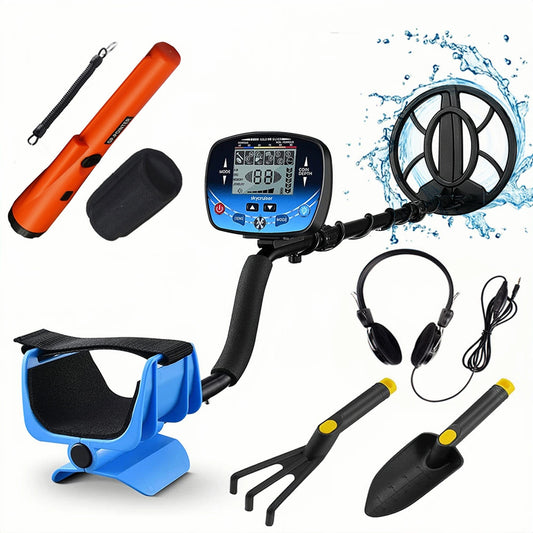
Metal Detecting in Mexico: Beach Detecting, Safety, and Legal Tips
Share
Metal detecting in Mexico is an exciting adventure, especially along its famous beaches where tourists and locals alike have lost countless valuables over the years.
However, before you pack your detector for a trip to Cancun, Playa del Carmen, or Puerto Vallarta, it’s crucial to understand the legal landscape, safety considerations, and best practices for metal detecting in Mexico.
This guide covers everything you need to know for successful, safe, and legal beach detecting in Mexico.

Is Metal Detecting Legal in Mexico?

Metal detecting in Mexico is generally allowed, especially on public beaches, but there are important restrictions and regional differences to be aware of. According to global metal detecting law summaries, Mexico permits detecting, but you should always check for local rules, especially in areas with environmental or archaeological protections
Key Legal Points for Metal Detecting in Mexico:
-
Beaches: Metal detecting is usually permitted on public beaches. However, some states or resorts may have additional restrictions, particularly in protected areas like turtle sanctuaries or national parks.
-
Hotel & Resort Beaches: Many resorts allow metal detecting on their beachfronts, but always ask hotel management for permission, as policies can change and some beaches are government-protected.
-
Private Property: You must obtain explicit permission from landowners before detecting on private land.
-
Archaeological Sites: Detecting is strictly prohibited at archaeological sites, historic landmarks, and protected zones. Removing artifacts is a serious offense and can result in heavy fines or jail time.
-
Exporting Finds: If you discover relics or items of historical significance, Mexican law requires you to declare them to avoid violating antiquities laws.
Pro Tip: Always check with local authorities or your hotel before detecting, as enforcement can vary by region and even by beach.
Check out our article about the Best Places for Metal Detecting.
Beach Detecting in Mexico: Where and How
Best Beaches for Metal Detecting in Mexico
Mexico’s busiest tourist beaches are prime spots for finding jewelry, coins, and other lost valuables. Popular destinations include:
-
Cancun: The hotel zone beaches are busy and often yield modern treasures, but always check for local restrictions.

-
Playa del Carmen: Resort beaches are often the best, especially early in the morning before crowds arrive.

-
Puerto Vallarta: Long stretches of public beach with high foot traffic, but stay within the beach area and avoid protected zones.

-
Cozumel & Isla Mujeres: Great for underwater detecting, but always ask about marine park boundaries.

Tip: Resort beaches often have less trash and more valuable finds, but remember that you should only detect in front of the resort where you are staying and always respect hotel policies.
Check out our article about the best tips and advices for beach metal detecting.
Safety Tips for Metal Detecting in Mexico
Metal detecting in Mexico is generally safe, especially in tourist areas, but there are some important precautions to keep in mind:
Personal Safety
-
Stay in Tourist Zones: Stick to busy, well-patrolled beaches. Avoid remote or deserted areas, particularly at night.
-
Be Aware of Local Laws: Police and military patrols are common on Mexican beaches. If approached, be respectful and show any permissions or hotel approval you have.
-
Travel with a Buddy: If possible, detect with a partner or let someone know where you’ll be.
-
Be Cautious with Finds: Valuable finds can attract unwanted attention. Keep your discoveries discreet and avoid displaying expensive items openly.

Environmental Safety
-
Watch for Wildlife: Some beaches are turtle nesting sites or wildlife sanctuaries. These areas are strictly protected, and detecting is not allowed.
-
Heat and Sun: Mexican beaches can be extremely hot. Wear sunscreen, a hat, and stay hydrated.
-
Sharp Objects: Always wear gloves and sturdy shoes to protect against broken glass, sharp metal, or other hazards in the sand.

Equipment Safety
-
Use Waterproof Detectors: Saltwater and sand can damage electronics. Use waterproof or water-resistant detectors and keep spare batteries in a dry pouch.
-
Bring Essential Accessories: A pinpointer, sand scoop, and finds pouch are invaluable for efficient and safe digging.
Legal and Ethical Best Practices
-
Always Refill Holes: Leave the beach as you found it—fill in all holes and remove any trash you dig up.
-
Respect Protected Areas: Do not detect in turtle sanctuaries, archaeological zones, or marked protected beaches.
-
Declare Significant Finds: If you find items of historical or cultural value, report them to local authorities as required by Mexican law.
-
Obtain Permits if Needed: If you plan to detect in a regulated area or for an extended period, inquire about local permits or written permissions.
Real-World Experiences
Detectorists report that early mornings are the best time for beach detecting in Mexico—there are fewer people, and the sand is less disturbed7. Some travelers have found gold rings, silver jewelry, and coins on Mexico’s busiest beaches, especially after busy weekends or holidays.
However, always remain vigilant, as both local authorities and, in rare cases, criminal elements may show interest in your activities or finds.

Conclusion: Enjoying Metal Detecting in Mexico Responsibly
Metal detecting in Mexico, especially on its beautiful beaches, can be a highly rewarding experience. By understanding and respecting the legal landscape, prioritizing safety, and following ethical practices, you can enjoy successful and trouble-free hunts. Always seek permission where required, stay within legal and safe zones, and treat the environment and local communities with respect.
Happy hunting—and may your next trip to Mexico’s shores uncover both treasures and unforgettable memories!




